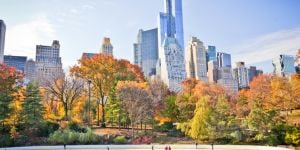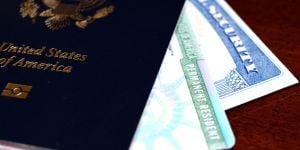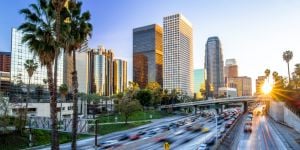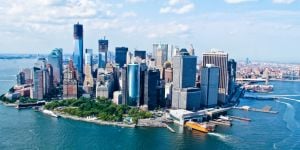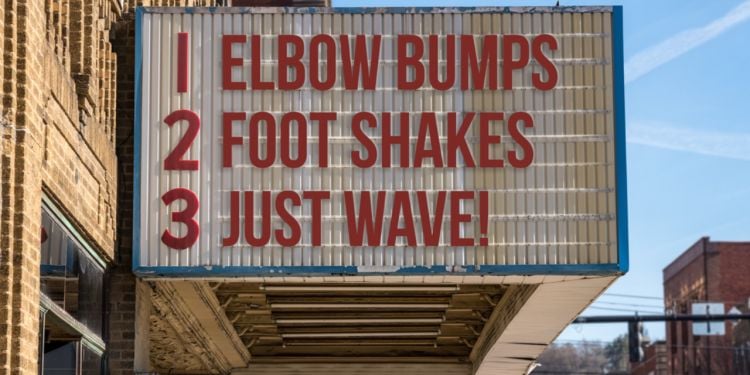
Although certain categories of travellers are allowed to enter the USA, it's still not recommended to travel there for non-essential reasons. If you're still looking to relocate to the USA after the COVID-19 crisis, here's an insight into current and forthcoming changes regarding entry requirements and visas, work, real estate, education, cost of living, lifestyle, etc.
What are the current regulations for entering the USA?
Foreign nationals who have stayed in the Schengen area, that is in Austria, Belgium, Czech Republic, Denmark, Estonia, Finland, France, Germany, Greece, Hungary, Iceland, Italy, Liechtenstein, Lithuania, Luxembourg, Malta, Monaco, Netherlands, Norway, Poland, Portugal, San Marino, Slovakia, Slovenia, Spain, Sweden, Switzerland, and the Vatican, as well as those who have stayed in Ireland, Brazil, the United Kingdom and China for 14 days prior to their trip are not permitted to enter the United States. However, there are exceptions for US citizens, permanent residents, as well as certain family members, and other specific categories of travellers, such as US diplomats and officials, who have stayed in any of the listed countries. They are required to enter the country through one of the 15 designated airports. However, entry requirements for them remain the same as before the COVID-19 crisis. Find out more on the White House website. On arrival, travellers undergo a temperature check and are required to indicate their medical history. They also have to provide their contact details to health authorities for contact-tracing if needed. Anyone entering the United States is required to self-isolate for 14 days following arrival. For information on precautions to take once you arrive in the United States, visit the Centers for Disease Control and Prevention website or the Department of Home Affairs website.
Have there been any visa changes recently?
There are quite significant changes, although the US government backed off on the cancellation of certain types of visas. For example, no new and and renewed permanent residence cards will be issued at least until December 31, 2020. However, existing green cards remain valid. Also, new applications and renewal of H1-B, H2-B, J and L visas will not be processed until December 31, 2020, but existing visas remain valid. Holders of these types of visas who are currently abroad can return to the USA if their visa has not expired since these won't be renewed until further notice. International students holding F-1 or M-1 visas do not need to request an exception to travel to the USA. Spouses and children of US citizens can apply for visas normally. Find out more on the website of the US Embassy in your home country or the Bureau of Consular Affairs website.
Is it easy to find work in the USA following the crisis?
The US labour market is going through one of the hardest times in history. Indeed, the COVID-19 crisis resulted in massive layoffs, with an unemployment rate rising from 3.8% in February, just before the pandemic, to 10.2% in July, according to the Pew Research Center. In fact, the unemployment rate went up to 14.4% in April before dropping to 13.0% in May. The number of job seekers in the USA thus increased from 1.4 million to 16.3 million in July 2020. Hospitality and leisure, employment services, as well as transport, have been affected the most by the crisis. However, various industries are recovering slowly. In recent months, nearly 6 million new jobs have been created, particularly in the retail, hospitality and leisure, and health sectors. Restaurants, bars and shops are hiring again, but it's too early to determine the long term trend. According to the US government, this slight improvement does not mean that the US labour market has stabilised. So finding a job in the USA after the COVID-19 crisis as an expat isn't going to be an easy task.
How has the American healthcare system performed during the crisis?
The coronavirus pandemic shed light on many flaws in the American health system. Even though the USA has one of the world's most developed health systems, it clearly was not prepared for this type of crisis. In fact, the country broke the records with 5.79 million COVID-19 cases and more than 170,000 deaths. From the onset of the crisis, there was a shortage of personal protective equipment, ventilators and reliable screening tests. Also, only 925,000 hospital beds and 160,000 ventilators were available for a population of 328 million, not to mention labour shortage in the health sector. The USA is home to 1,005,295 doctors for 6,146 hospitals, including 5,198 community health centres. The US government was compelled to invest $ 50 billion in the fight against the coronavirus. Partnerships were set up with private laboratories for analysing COVID-19 tests. Today, more than 25,000 screening tests are performed daily, which is helping in controlling the spread of the virus. Besides, the US government is easing visa requirements to allow the recruitment of foreign health professionals. It's also worth noting that COVID-19 treatment in the USA is extremely expensive, especially for the uninsured. In some States, costs range from $ 39,927 to $ 73,000 while an insured COVID-19 patient pays between $ 9,000 and $ 20,000. Still, there are around 27 million uninsured people in the country. Taking into account the massive layoffs and salary cuts, many Americans did not have access to healthcare and proper COVID-19 treatment. In many states, however, COVID-19 screening is being done free of charge.
Has anything changed regarding universities and schools?
Many schools in the United States have reopened in line with strict government regulations as the crisis remains out of control. Since then, a significant number of teachers and students have been tested positive for COVID-19, although social distancing is being observed at school where face to face classes are being conducted. The wearing of masks is strongly recommended. On the other hand, some schools opted for part-time classes while others chose distance learning on alternate days. Teaching methods can be defined at the school level, depending on how the situation. Some states simply chose to postpone the beginning of the new academic year to September 14 to allow students and teachers to better prepare for face-to-face classes under current regulations. Regarding American universities, most of them reopened in August. More than a hundred of them have also opted for hybrid education, while a bunch of them opted for distance learning until further notice. It's worth noting that some universities have issued a communique to their students and staff, stating that they don't have to take risks where remote work and distance learning are possible. At universities that are providing face-to-face classes, social distancing, and the compulsory wearing of masks are the new norm. Also, the capacity of student dorms has been reduced. Some of these universities have also made testing for COVID-19 mandatory and have put in place a strategy for tracing and isolating suspected cases.
How is the American real estate market following the crisis?
The US real estate market is world-famous for its high prices. Still, the COVID-19 crisis led to price fluctuations varying from one State to another. According to a study by OJO Labs, nearly 80% of potential buyers have given up on their project in recent months. However, research is still on, and real estate agencies are offering virtual property tours. The National Association of Realtors (NAR) highlights a 16% drop property purchases by foreign nationals in March 2020 compared to 2019. Only 154,000 properties were purchased by foreigners, including permanent residents and overseas buyers, which translates into a decrease of US$ 3 billion compared to 2019. It's worth noting that the Chinese, Canadians, Mexicans, Indians and Colombians are the most likely to invest in real estate in the USA, especially in Florida, California, Texas, New York and New Jersey. However, according to the NAR, Chinese buyers were less keen on buying property in the country during the past year. Still, property sales rose to 20.7% from May to June 2020 although this means an 11.3% drop compared to the same period in 2019. It's still early to speak about the US real estate market trends, but it seems that potential buyers are taking advantage of the historic drop in mortgage rates. So if you are currently in the United States and have always dreamed of becoming a homeowner, the current situation might trigger your plans.
Has the cost of living in the USA changed because of the crisis?
Life in the United States has become more expensive since the onset of the crisis, even though the prices of some products and services have fallen. For example, hotels and accommodation were forced to slash their prices by 7.7% between February and March, while air tickets cost 12.6% cheaper. The price of fuel also fell by 10.5%, and fuel oil costs 13.7% cheaper, which is the lowest rate since the 2008 crisis. As sporting events have been cancelled, sports equipment are also 2% cheaper. On the other hand, food prices are on the rise since the past few months. In general, the prices of food, as well as beverages like wine and beer, are higher today.
How about lifestyle? Have there been major changes in habits following the sanitary crisis?
As noted above, the situation in the USA remains out of control, even though businesses, offices, as well as schools and universities, have reopened. The COVID-19 crisis has profoundly transformed the American lifestyle. Today, most Americans fear being infected by the virus. People are going out less and simply avoid doing so when it is not necessary. Public gatherings are not allowed either. Social distancing is recommended, and wearing a mask is mandatory in public places, including stores. Also, regular hand sanitising has become the new norm. Restaurants and cafes hardly fill up, and people hesitate before visiting friends and relatives, according to expats in the USA. Most shops and services are advising online booking, contactless payment, and are regularly cleaning up their premises. The Centers for Disease Control and Prevention websites lists a set of guidelines for newcomers in the USA.
We do our best to provide accurate and up to date information. However, if you have noticed any inaccuracies in this article, please let us know in the comments section below.
